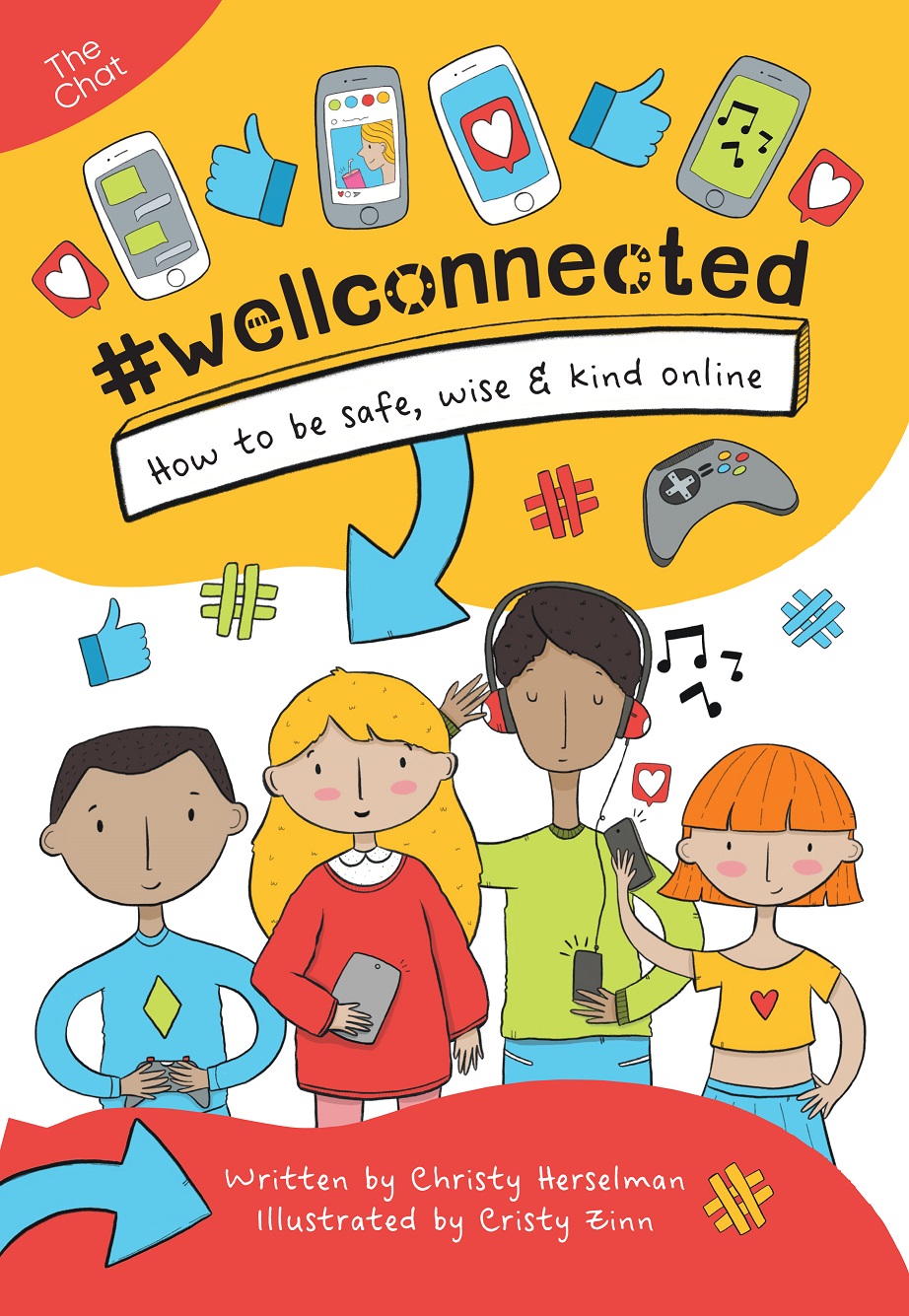We all know that too much screen time is bad for our kids. But we don’t always fully understand the implications, how to detect if our child has a problem and what steps to put in place to keep it under control.
The time our children spend on screens is an important topic and an issue almost all ‘millennial parents’ are currently facing. We caught up with author of the book, #wellconnected: How to be Safe, Wise and Kind Online, Christy Herselman.

Christy founded a movement called The Chat six years ago and her first book, called The Chat: Birds Bees and Destinies, helps parents explain the purpose and mechanics of sex to seven to nine year old children. Christy works closely with parents, schools, children and teens. “Big topics like sex, social media and screen time are sometimes hard to talk about. As parents we can feel awkward, overwhelmed or just plain clueless!”
We asked Christy to share some current stats. “Depending on socio-economic influences, children aged four to 12 are spending more than four hours online daily. Teenagers spend between six and half and nine hours (and on multiple screens simultaneously!). The American Association of Paediatricians recommends the following: under 2 years old – no screen time, two to five years old – no more than one hour per day and five to 17 years old – no more than two hours per day.”
It’s important to consider how your children are spending their time online as well, as not all screen time carries the same potential negative impact. “Girls spending excessive time on comparative social media is detrimental to their self-esteem and relationships and gaming is one of the most addictive forms of screen time and needs careful monitoring.”
So what makes screens addictive? “Gaming is designed to appeal to the mastery curve and spike dopamine in our brains, making it highly addictive. The mastery curve makes us want to ‘pass one more level’ or ‘play one more round’ to see if we can do better. While the rush of dopamine to the pleasure centre of our brains caused by gaming makes us feel great but also drops very quickly and leaves us craving more.” Christy says these repeated highs and lows are incredibly bad for the brain and make children distracted and unable to pay attention for a long time. “The normal, gradual release of dopamine from activities like hanging out with our friends, playing sport and natural beauty are no longer enough and these experiences begin to feel boring and mundane compared to their online activities. Their brains can easily become addicted to these dopamine highs and can result in gaming and screen dependencies and addictions.”
There are other factors too. Teachers report that children who spend excessive time on screens are less school-ready, inattentive and have poor short-term memory and too much time on screens, especially gaming, can cause children to be emotionally unstable, prone to melt-downs, rudeness and anti-social behaviour. Their physical health is also impacted.
We asked Christy what warning parents should look out for. “In terms of screen addictions, look out for increased and persistent use of the game/app, social withdrawal, frequent requests for the device, tantrums when refused, disengaging from other activities and excessive preoccupation with the game. In terms of screens in general, look out for changes in behaviour, secrecy, withdrawal from friendships and family, increased anxiety, issues around body and food, lying and sneaking around to get time on a device, mood swings and irrational behaviour. This is not an exhaustive list but these may indicate that their online interactions are having a negative impact on your child.”
CHRISTY’S TIPS FOR CREATING A HEALTHY DIGITAL CULTURE IN THE HOME:
• Set pre-agreed time limits and stick to them. Use a timer for very young kids. For older kids, have pre-agreed limits for different things like Facetiming friends and family, connecting with friends, gaming, school work, family, movies etc. Train them in self-managing and self-regulating. No more than two hours a day, even on weekends.
• Only use devices at home, NEVER in restaurants or other public places. Moms, delete all those games off your phone to avoid the temptation of handing your phone to your whining child in the supermarket queue! Patience is a life skill.
• Never use cellphones or tablets at the table, during family activities or social gatherings.
• All phones and devices only used in communal areas. When not in use they should be stored where you are in control of them. I have a charging station in the kitchen where all devices (including phones) live when not in use.
• No phones at bedtime. All devices plugged into a communal charging station one hour before bedtime. Read before bed. Children should never have devices in their bedrooms overnight. You would be shocked at how many kids game while their parents are asleep!
• Avoid screen in the morning before school work.
• Make sure that all homework, chores, packing of school bags, etc, are done before you allow screen time during the week. Better yet, keep it for the weekend.
• Eat meals together at the table (at least once a day), schedule family activities and be intentional about one-on-one moments of connection through the day. Screens often disconnect family members from one another.
• Make sure they get enough regular exercise and uninterrupted sleep. Prioritize face-to-face interactions and relationships.
• Stick to the boundaries you have set.
• Get help if you feel you aren’t able to get a handle on this yourself.






